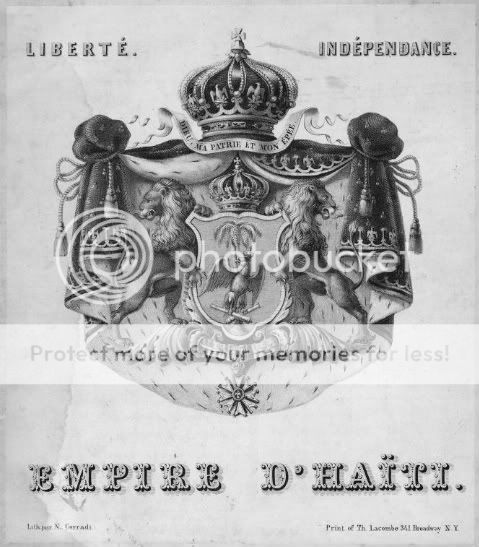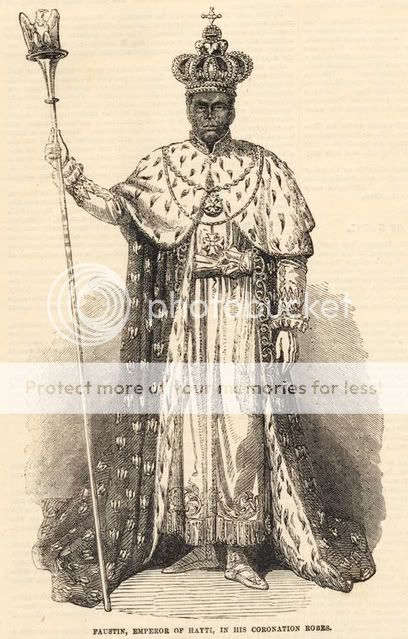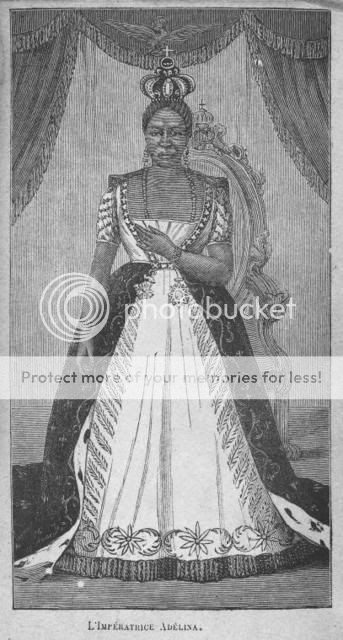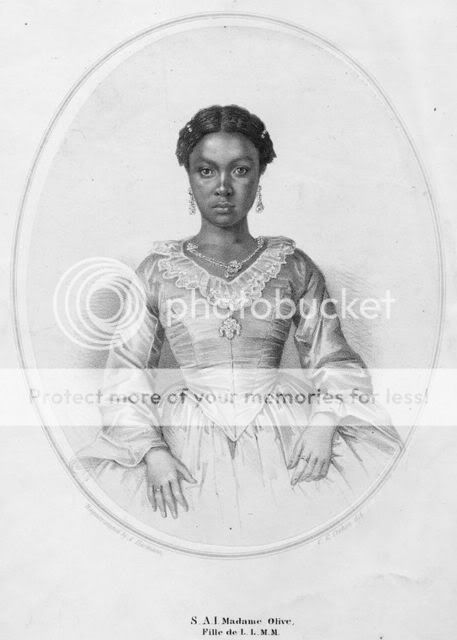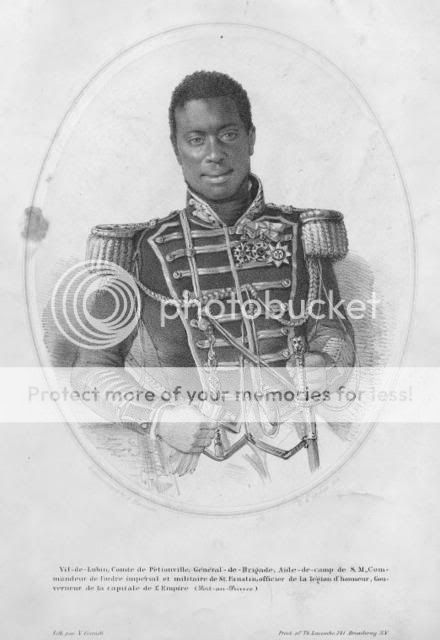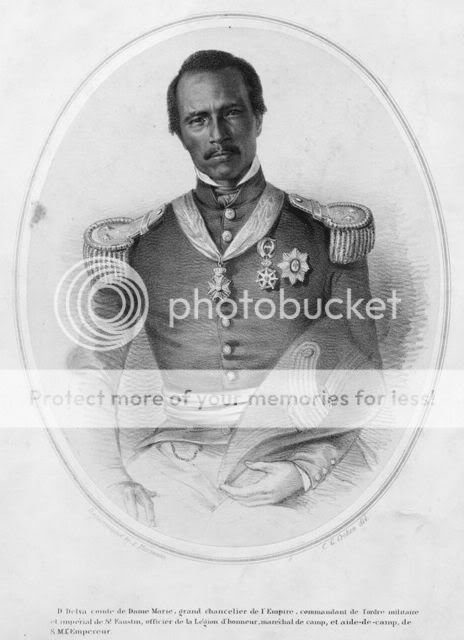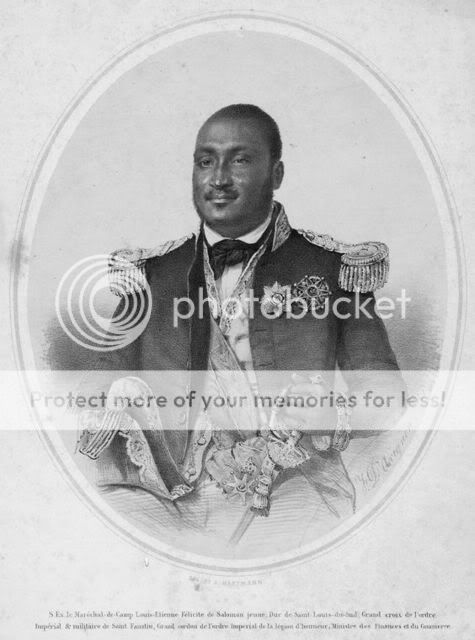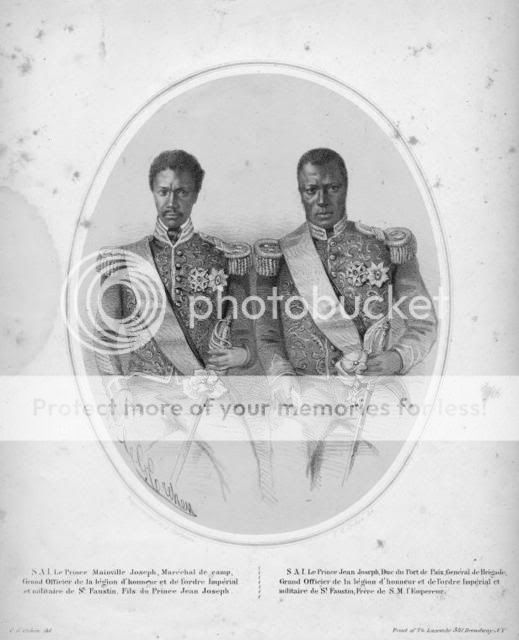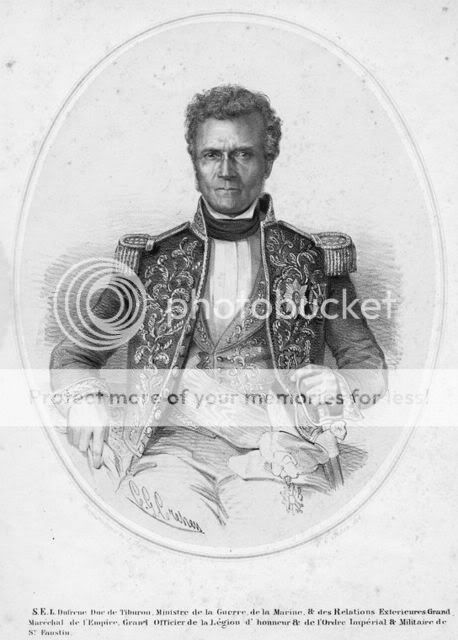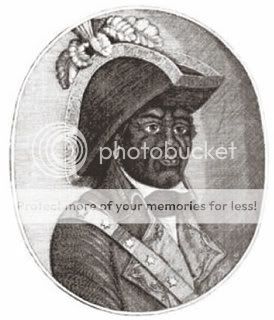The Haitian History Thread - Culture (3) - Nairaland
Nairaland Forum / Nairaland / General / Culture / The Haitian History Thread (16029 Views)
Ibo Granmoun : The Roots Of Haitian Democracy / Yoruba History Thread / I'mma Haitian That Wants To Change My Name. (2) (3) (4)
| Re: The Haitian History Thread by Nobody: 4:18am On Nov 14, 2013 |
PAPA AFRICA: Got it, Thanks man. You welcome.  Just see if the downloading works. |
| Re: The Haitian History Thread by PAPAAFRICA: 4:20am On Nov 14, 2013 |
works fine.  |
| Re: The Haitian History Thread by Nobody: 4:21am On Nov 14, 2013 |
PAPA AFRICA: works fine. Great! You're able to read it? Thats the same book I used for my novel. |
| Re: The Haitian History Thread by PAPAAFRICA: 4:24am On Nov 14, 2013 |
KidStranglehold:reading it now and plan on reading it all day tomorrow. thanks again.  |
| Re: The Haitian History Thread by Nobody: 4:29am On Nov 14, 2013 |
PAPA AFRICA: reading it now and plan on reading it all day tomorrow. thanks again. Again you welcome.  Its a really good book with a lot of details. |
| Re: The Haitian History Thread by Nobody: 2:39am On Nov 15, 2013 |
Jacmel: Haiti's historic town known for its French architecture.      |
| Re: The Haitian History Thread by belltwelve(m): 12:40pm On Nov 17, 2013 |
Haiti as a great country. This is a country that liberated a whole continent from slavery and doubled the size of the United States as a legacy of their independence war. Bravo Haiti, you are great. 1 Like |
| Re: The Haitian History Thread by Nobody: 4:55pm On Nov 17, 2013 |
^Yep!  |
| Re: The Haitian History Thread by Nobody: 12:41am On Nov 18, 2013 |
[size=15pt]The Muslim Factor in the Haitian Revolution[/size] ‘What the French did not realize was that their most profitable colony, Saint-Dominique (now Haiti), was fertile ground for Muslim maroons and rebels. The island had always had numerous maroon communities, and an average of a thousand runaways were advertised every year. The notices posted by the plantation owners, who listed the disappeared give a measure of the place of the Muslims among the maroons. Although large numbers of Muslims had been forcibly baptized, some had retained their original names, such as Ayouba, Tamerlan, Aly, Soliman, Lamine, Thisiman, Yaya, Belaly, and Salomon who appear in the notices. Female runaways, such as[b] Fatme, Fatima, and Hayda[/b], are also mentioned. The Africans fled individually and, more usually, in groups. For instance, twelve Mandingo men, aged twenty-two to twenty-six, fled one night in 1783 from their owner’s house in Port-au-Prince. They were all professionals—masons, carpenters, and bakers. It is not known if some maroon communities were entirely composed of Muslims, but major communities had Muslim leaders. Yaya, also called Gillot, was a devastating presence in the parishes of Trou and Terrier Rouge, before he was executed in September 1787. In Cul-de-Sac, an African Muslim named Halaou led a veritable army of thousands of maroons. Part II These Muslims were well known and feared, but the most famous of the pre- Revolution maroon leaders was without a doubt Francois Macandal. Macandal was a field hand, employed on a sugar plantation. One day, as he was working the sugar mill, one of his hands got caught on the wheel and had to be severed. As he could no longer cut the cane, he became a cattleman, later running away. For eighteen years Macandal was at large, living in the mountains but making frequent incursions on the plantations to deliver death. He organized a network of devoted followers and taught the slaves how to make poison, which they used against their owners or against other slaves in order to ruin the slaveholders. His reputation was such that a French document of 1758 estimates—with much exaggeration, no doubt—the number of deaths he provoked at 6,000 over three years. In eighteenth-century Saint-Domingue, poison was called macandal. An African born in “Guinea,” Francois Macandal was in all probability a Mandingo. He came from an illustrious family and had been sold to the Europeans as a war captive. He was a Muslim who “had instruction and possessed the Arabic language very well,” emphasized nineteenth-century Haitian historian Thomas Madiou, who gathered information through the veterans of the Haitian Revolution. Macandal was most likely a marabout, for French official documents describe him as being able to predict the future and as having revelations. He was also well known for his skills in amulet making so much so that grisgris were called macandals. In addition, he was said to be a prophet, which indicates that he was perceived as having a direct connection to God. Thus besides being a marabout he may have been a sharif, a descendant of the Prophet Muhammed (Peace Be Upon Him) ; but this is only speculation, as no evidence exists to confirm or inform this hypothesis. |
| Re: The Haitian History Thread by Nobody: 12:56am On Nov 18, 2013 |
Continued: Part III Francois Macandal was much more than simply a maroon leader. He had a long-term plan for the island and saw the maroons as the “center of an organized resistance of the blacks against the whites,” stressed an eighteenth-century French document. He used practical symbolism to explain his vision for Saint-Domingue, Here are the first inhabitants of Saint -Domingue, they were yellow. “Here are the present inhabitants”—and he showed the white handkerchief—“here, at last, are those who will remain the masters of the island; it is the black handkerchief.” To turn this prophecy into reality, Macandal planned to poison the wells of the city of Cap-Français. Once the slaveholders were dead or in the middle of convulsions, the “old mand from the mountain,” as Macandal was sometimes called, followed by his captains and lieutenants, whould attack the city and kill the remaining whites. Before he could launch his assault, however, a slave betrayed him and he was caught. Tied up in a room with two guards, he somehow managed to escape. If he had killed the men with the pistol that lay on a table between them, Macandal may have been able to remain at large. But he had not. The guards gave the alarm, and he was caught again, this time by dogs. Part IV On January 20, 1758, Macandal was burned at the stake. The pole he was tied to collapsed, and the crowd saw this incident as a sign of his immortality. He had told his followers that as he was put to death, he would turn into a fly and fly away. The executioner asked to kill him with a sword as the coup de grâce, but his request was denied by the attorney general. Macandal was tied to a plank and thrown into the fire again. The maroon leader Macandal can best be described as a marabout-warrior. He used his occult knowledge and his charisma to gain allies to wage war against his enemy, and he participated in the action personally. Part V Another popular leader who attained quasi-mythical status in Haitian history was Boukman. Very little is known about him. He was not born in Saint-Domingue but came from Jamaica, smuggled by a British slaver. As a slave, he became professional and rose to the rank of driver, later becoming a coachman. Using a position that allowed him to travel from plantation to plantation, as well as his charismatic personality, he had built a network of followers in the north. He definitely entered Haitian history when he galvanized a large assembly of slaves gathered on the night of August 14, 1791, in a clearing in the forest of Bois-Caiman. During this voodoo ceremony, Boukman launched the general revolt of the slaves with a speech in Creole that has remained famous. He denounced the God of the whites, who asked for crime, whereas the God of the Slaves wanted only good. “But this God who is so good, orders you to seek revenge,” he pounded. “He will direct our arms, he will assist us. Throw away the image of the God of the whites who is thirsty for our tears and listen to freedom which talks to our hearts.” A week later, two hundred sugar estates and eighteen hundred coffee plantations were destroyed by the slaves, who were said to have cut the throats of a thousand slaveholders. At the beginning of November, Boukman was shot dead by an officer as he was fighting a detachment of the French army with a group of maroons. His severed head was fixed on a pole and exposed on a public square in Cap-Français. There are indications that Boukman was a Muslim. Coming from Jamaica, he had an English name that was rendered phonetically in French by Boukman or Boukmann; in English, however, it was Bookman. Boukman was a “man of the book,” as the Muslims were referred to even in Africa—in Sierra Leone, for example, explained an English lieutenant, the Mandingo were “Prime Ministers” of every town, and they went “by the name bookman.” It is likely that Boukman was a Jamaican Muslim who had a Koran, and that he got his nickname from this. Part VI As many Muslims had done, and would continue to do, he had climbed the echelons of the slaves’ power structure and had reached the top. He was trusted, professional slave. He was also at the top of the slaves’ hierarchy in another way: he was recognized as a priest. He had passed down in history as a voodoo priest, but this does not mean that he was such. Because the Muslim factor largely has been ignored, any religious leader of African origin in the Caribbean has been linked to voodoo or orbeah. Part VII There is thus compelling evidence that two major leaders in Haitian history—Macandal and Boukman—were not only Muslims, they did not embark on a jihad, but they were the leaders of the slave population, irrespective of religion. What they provided was military expertise coupled with spiritual and occult assurance that the outcome of the fight would be positive. Both skills were of extreme value, each in its own way; but put together, they conferred on these leaders the aura of mythical figures. Because of their marabout knowledge they could galvanize the masses, push them to action and to surpass themselves. Other marabouts, and the Muslims in general, played a crucial role in the Haitian revolts and ultimately in the Haitian Revolution through their occult[b] skills, literacy, and military traditions[/b]. The marabouts provided protections to the insurgents in the form of gris-gris, as Colonel Malenfant recorded, and the Muslims used Arabic to communicate during uprisings. Through their role and contribution have not been acknowledged, the Muslims were essential in the success of the Haitian Revolution’ Source: http://www.islamawareness.net/Caribbean/Haiti/Haiti_Article001.pdf |
| Re: The Haitian History Thread by Nobody: 1:11am On Nov 18, 2013 |
Now I am not too sure about Boukman being a Muslim by faith. Some hsitorians say he was a Vodou Houngan. But we really don't know what his faith was. For all we know he could have spent time in Jamaica enslaved to some Jewish guy who was such a good accountant they called him "the book man", and it stuck to Boukman Dutty. Again the truth is, we just don't know. However! Many of the Africans brought to Haiti were in fact Muslims, and I think most people know that there are hereditary Muslims in Haiti's Northwest, although they have lost a great deal of the liturgy and tradition. Also many of the Muslims spoke Arabic and and Haitian creole does have a mix of SOME Arabic, but again we aren't too sure. A compelling argument for a Muslim Boukman is this: His French name came from his English nickname, "Book Man," which some scholars, despite accounts suggesting that he was a Vodou houngan, have interpreted as meaning that he may have been Muslim, since in many Muslim regions the term "man of the book" is a synonym for an adherent of the Islamic faith. One scholar suggests that it is likely that Boukman "was a Jamaican Muslim who had a Quran, and that he got his nickname from this." http://en.wikipedia.org/wiki/Dutty_Boukman#Background Again we are not too sure since his background and religious faith is a blur, but that gives us some hints in a way. |
| Re: The Haitian History Thread by Nobody: 8:15pm On Nov 30, 2013 |
The Truth About Haiti -Part2 http://www.blogtalkradio.com/civilalertworld/2013/01/18/the-truth-about-haiti-part2-mafanikio-daima-anhz-ni-ell Highlighted points: Pre-Columbus History of Haiti Who are the Tainos? Who are the Dominicans? Did everybody from Haiti come from Africa via slave ships? The populating of Haiti with Moors from the continental United States. Freemasonry , the Sons of Haiti and the Statue of Liberty Vodun, Preserved Moorish Science What are the children taught in Haitian Schools? Neg Maroons (Neg Mawon) Haitian Independence. Haiti Today. ^^^^Found this to be interesting. Don't know if true so wont put much hope into it. Just wanted to post this. |
| Re: The Haitian History Thread by TerryCarr(m): 6:06am On Dec 23, 2013 |
KidStranglehold: Old Haitian photos. I actually believe Haiti was the first 'black' empire and not republic...hardly [img]http://upload.wikimedia.org/wikipedia/commons/e/e7/African-civilizations-map-pre-colonial.svg[/img] |
| Re: The Haitian History Thread by Ayiti1804: 10:29pm On Oct 22, 2014 |
KidStranglehold:don't forget also taino arawak native Amerindian |
| Re: The Haitian History Thread by Ayiti1804: 10:34pm On Oct 22, 2014 |
MounLakay:actually you're wrong the 5% has been like that for years it's actually more then that go to google and type in haiti scroll down and you'll see the actual numbers Haitians don't call themselves Africans they call themselves Haitians and so do the Haitians of middle eastern ancestry only 15% of the 95% are actually pure black |
| Re: The Haitian History Thread by Nobody: 7:12pm On Nov 19, 2014 |
Ayiti1804: First off "pure black" is a psudo like term. No one is truly pure anything, but more importantly(if I am reading you correctly), are you saying majority of Haitians are not black  ?? ??    Some Haitians may not consider themselves African(since they are not from Africa), but MOST consider themselves BLACK. |
| Re: The Haitian History Thread by Deltagiant: 11:45am On Nov 20, 2014 |
"The profound and generalised resentment of Nigeria against Biafra together with the will of domination of some nations jeopardise the future of Biafrans and threaten to destroy the glorious Ibo tribes, descendants of those men who contributed to the founding of the Haitian homeland" --Statement of Dr. Francois Duvalier, President of Haiti, on the Recognition of Biafra as a Sovereign State (22 March 1969) http://thepublicarchive.com/?p=2171 2 Likes |
| Re: The Haitian History Thread by Nobody: 10:58pm On Jan 15, 2015 |
Deltagiant: |
Emir Of Keffi, Mohammdu Chindo-Yamusa Is Dead / New Yam Festival Among Igbos / Why Do Foreigners Appreciate Nigerian Masquerades, Artifact More Than Nigerians?
(Go Up)
| Sections: politics (1) business autos (1) jobs (1) career education (1) romance computers phones travel sports fashion health religion celebs tv-movies music-radio literature webmasters programming techmarket Links: (1) (2) (3) (4) (5) (6) (7) (8) (9) (10) Nairaland - Copyright © 2005 - 2024 Oluwaseun Osewa. All rights reserved. See How To Advertise. 81 |
